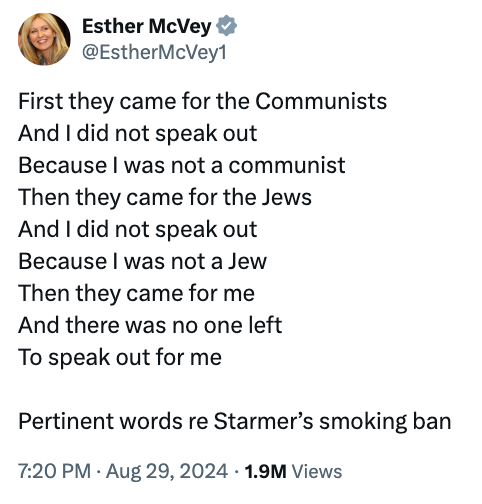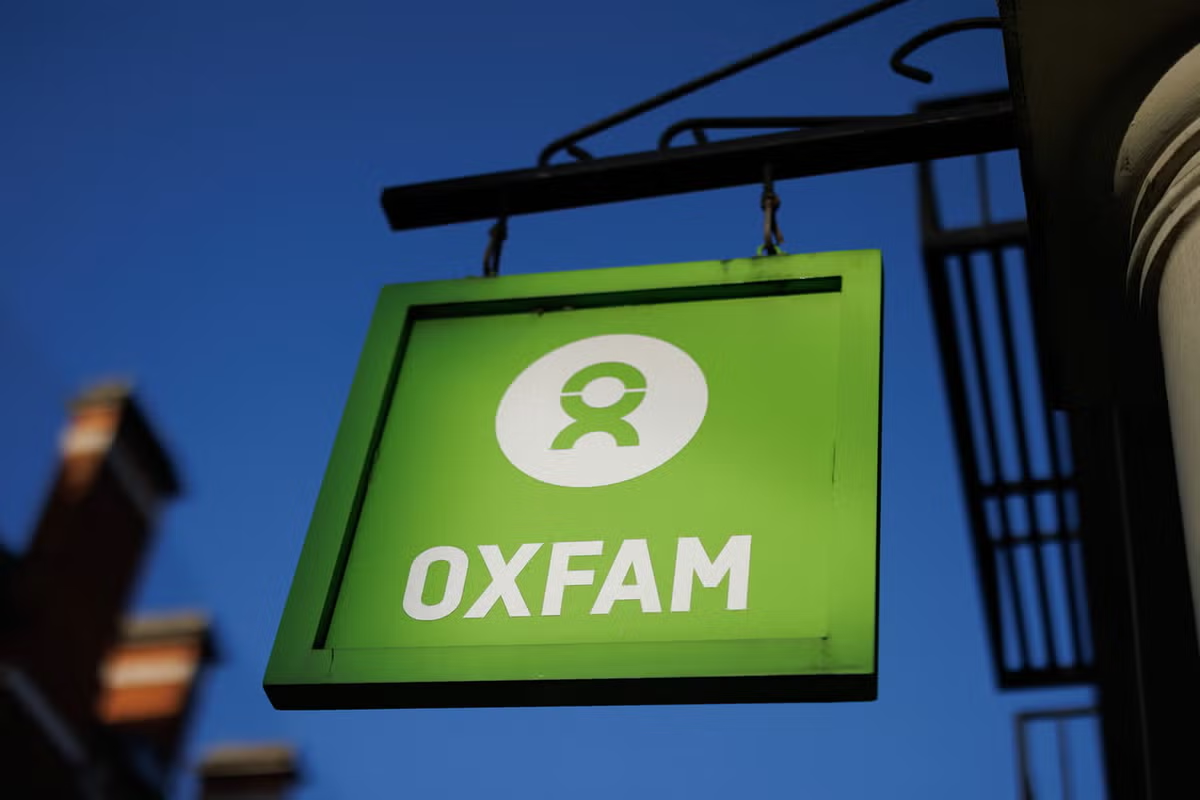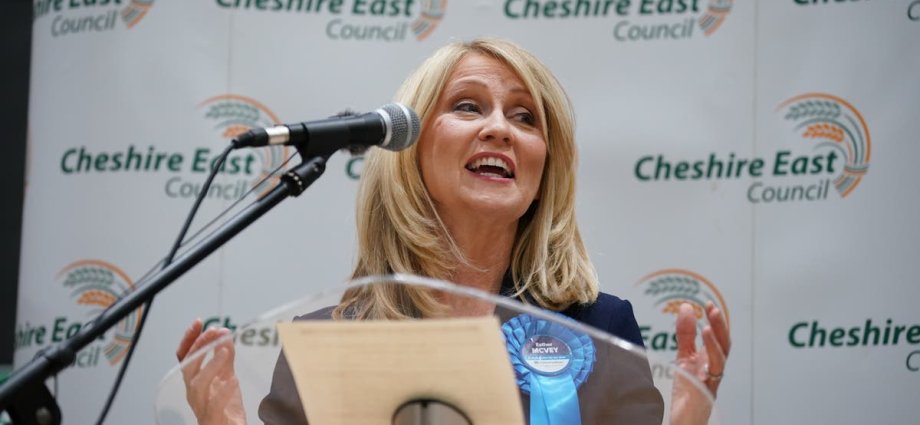The UK’s largest Jewish community organisation has lambasted Tory MP Esther McVey over her “repugnant” use of a famed poem warning of the horrors of Nazi persecution to criticise plans to ban smoking in pub gardens.
It emerged on Wednesday night that the government is considering a ban on outdoor smoking which would affect pub gardens, areas outside nightclubs, and locations such as hospitals and children’s play areas.
Sir Keir Starmer did not deny the leaked plans on Thursday, saying that action is needed “to reduce the burden on the NHS and the taxpayer” – sparking anger and alarm among a hospitality sector already crippled by Covid and the inflationary crisis.
Despite the changes being planned as an extension of legislation first introduced by Rishi Sunak’s government to incrementally outlaw smoking entirely, several Conservatives were among those attacking the policy as a blindsiding assault on individual freedoms.
But perhaps the most eyebrow-raising criticism came from Ms McVey, who most recently served as Mr Sunak’s “common sense” minister.
In a post on X, the former TV presenter wrote out the words to German theologian Martin Niemoller’s famed 1946 poem, First They Came, which warns how those who stood passively by in the face of intensifying Nazi persecution became complicit in the Holocaust.
Ms Mcvey then added: “Pertinent words re Starmer’s smoking ban.”

Her remark drew swift condemnation, with the Board of Deputies of British Jews among those criticising the comment as “breathtakingly thoughtless”.
In a statement, the community organisation said: “The use of Martin Niemoller’s poem about the horrors of the Nazis to describe a potential smoking ban is an ill-considered and repugnant action.
“We would strongly encourage the MP for Tatton to delete her tweet and apologise for this breathtakingly thoughtless comparison.”
Israeli writer and founder of the Tel-Aviv Institute, Hen Mazzig, added: “A member of British parliament equates a ban on smoking to a genocide of Jews.
“If this were just a random tweet, I would make fun of it and move on. But this person is a national policymaker, and can’t tell the difference between a public health policy and the largest, most industrialized genocide in history. Smoking can kill you. Being Jewish shouldn’t have to.”

Health secretary Wes Streeting urged the Tory MP to “get a grip”, while Labour Party chair Ellie Reeves urged Mr Sunak and Tory leadership contenders to condemn the “grossly offensive” remarks.
But in a post issued three hours later, Ms McVey doubled down on her “analogy” and insisted that “someone has to make a stand against the metropolitan politically correct bullies”.
She said: “Nobody is suggesting that banning smoking outside pubs can be equated with what happened to the Jews at the hands of the Nazis. It is ridiculous for anyone to even suggest that is what I was doing.
“It is called an analogy – those who restrict freedoms start with easy targets then expand their reach. I am pretty sure everyone understands the point I was making and knows that no offence was ever intended and that no equivalence was being suggested.
Echoing far-right claims of “two-tier policing”, Ms McVey continued: “This new socialist government should send shudders down everyone’s spine. Imposing laws it has no mandate for, whether removing money from pensioners, removing freedoms from individuals – presiding over a 2 tier system of policing and justice.
“I will not be bullied into removing a tweet by people who are deliberately twisting the meaning of my words and finding offence when they know none was intended. We already have too much of that politically correct bullying designed to silence any free speech they don’t like.
“If they think I can be bullied in that way then they have picked the wrong target. Someone has to make a stand against the metropolitan politically correct bullies. It is not my tweet people should be outraged about, but Starmer lying to get into power and then taking people for fools.”
In March, Ms McVey was among three Tory MPs whose GB News programmes were found by Ofcom to have broken the broadcasting regulator’s rules on due impartiality, alongside Jacob Rees-Mogg and Philip Davies.











